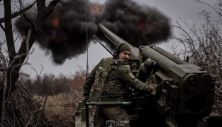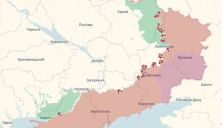The reported drop in production at Russian refineries to a 12-year low highlights the significant impact of external factors, such as Ukrainian drone attacks, on critical infrastructure. With oil refining levels projected to fall to 266.9 million tons by the end of 2024—just above the 2012 level of 265.4 million tons—Russia’s oil sector faces both operational and strategic challenges, the Moscow Times reports.
The forced equipment repairs following the drone attacks underscore the vulnerabilities in key infrastructure and may lead to broader implications for the country’s economy, which heavily relies on oil exports. The disruptions might also affect global oil markets, depending on how supply adjustments are managed.
A series of drone attacks throughout 2024 forced unscheduled equipment repairs, significantly impacting refinery operations.
One of the primary reasons for this decrease in refining capacity is the series of drone attacks carried out by Ukraine throughout 2024. These strikes have targeted critical oil refineries, forcing unscheduled equipment repairs and creating significant disruptions in operations. The repeated attacks have exposed vulnerabilities in Russia’s energy infrastructure and underscored the role of asymmetric warfare in modern conflicts. Unlike traditional military engagements, targeting infrastructure critical to a nation’s economy can have far-reaching economic and political consequences.
Operational challenges further compound the issue. The frequent downtime required for equipment maintenance and repair has reduced the overall efficiency of refinery operations. Beyond the immediate production losses, these challenges have led to increased maintenance costs and prolonged recovery periods for affected facilities.
In addition to direct physical damage, broader geopolitical and economic pressures have contributed to the decline. Western sanctions imposed on Russia have restricted access to advanced technologies and equipment necessary for modernizing and maintaining refining capabilities. Many of Russia’s facilities rely on aging infrastructure, which is less resilient to external attacks and more prone to operational inefficiencies. The combination of these factors has made it increasingly difficult for Russia to sustain its oil refining output at previous levels.
Energy market dynamics also play a significant role. Lower refining output limits Russia’s ability to meet both domestic and international demand for refined petroleum products. This situation could lead to shifts in global oil markets, especially if combined with other supply-side challenges. Russia may be forced to prioritize crude oil exports over refining in an effort to maintain revenue, potentially affecting trade balances and the availability of refined products worldwide.














